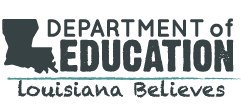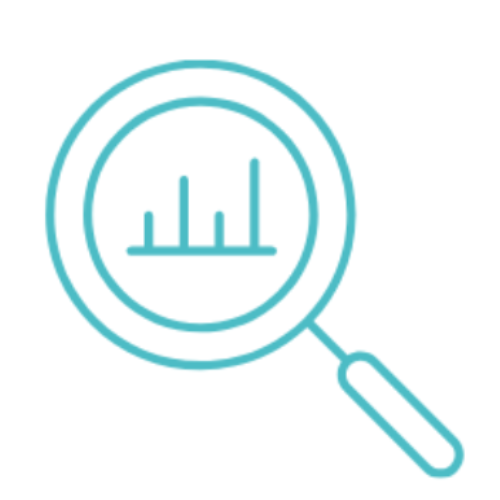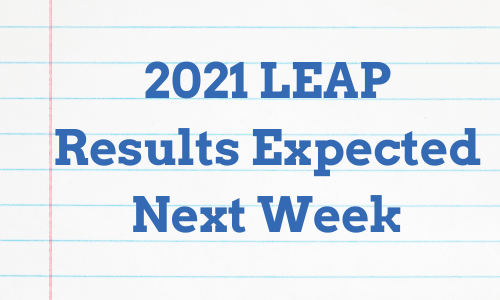2021 LEAP Results Expected Next Week
Our Students and Schools Worked Hard in a Challenging Year
This spring, Louisiana’s students in grades 3 through 12 took the Louisiana Educational Assessment Program (LEAP), which is one measure of their progress toward mastering the state’s academic standards for their grade level.
Due to the pandemic, the U.S. Department of Education (USDOE) allowed states to cancel tests in 2020, but in 2021, they required them once again, along with reinstating public reporting requirements on results.
The Louisiana Department of Education (LDOE) will likely release information next week about how students performed on those tests during a turbulent school year unlike any other.

COVID-19’s Known Impacts on Learning
The pandemic hindered and disrupted students’ academic progress. It was a tough year for teachers to teach and for students to learn. Our children and educators experienced incalculable trauma, grief, and fear this year, and so while we know it may affect their scores, tracking the extent of that impact is difficult.

Amidst the turmoil of this year, our schools and educators did phenomenal work. They turned on a dime and provided virtual instruction and supports faster than many other communities across the country, all while continuing to implement high-quality “Tier 1” curriculum aligned to more rigorous statewide learning standards.
Even with this great work, it was understandably difficult for them to engage and support students throughout the crisis. Students, like adults, faced a devastating and exhausting crisis all around them. The majority of NOLA-PS students are people of color, and we know that Black, Latinx, American Indian and Alaska Native communities were disproportionately impacted by the pandemic.
Students were also challenged by the shifting format of school based on local infection rates; at times they learned virtually, and other times, they could learn in-person. They lost easy, in-person access to school-based counselors, nurses, and educational resources, like libraries. Some children had internet access at home and others did not. Though internet hotspots were eventually distributed, inevitable technology troubles, from spotty connections to broken laptops, were year-round.
As a result, many students may not have mastered all of their grade level’s academic standards this year. Earlier this year, NOLA-PS estimated 30% of our students missed over ten days of school. To mitigate this, schools implemented summer learning programs that served an estimated 13,000 students to help each better prepare for next year.
The Scores
The last time New Orleans students took the LEAP in 2019, we saw that our schools made significant gains for students facing systemic racism and lack of access; Black students, students who are economically disadvantaged, students with disabilities, and students who are English learners all demonstrated higher growth scores in English Language Arts and Mathematics combined than the respective statewide averages.

We expect the 2021 scores, which will be released publicly by LDOE in August, to reflect the challenging year. At this time, we do not yet know whether the Louisiana Board of Elementary and Secondary Education (BESE) will assign schools letter grades that incorporate these scores, as they traditionally do.
We expect BESE to discuss LEAP scores, letter grades, and other aspects of school accountability at its next regularly scheduled meeting the week of August 16th.
The Work Ahead
While there is much we don’t yet know, we are sure of this: amidst the massive obstacles the COVID-19 pandemic put forth, our students and teachers were creative, productive, determined, and persistent. They taught, learned, and grew. Much of this – like the relationships built and the curiosity ignited – won’t show up directly on these tests. It is no less valuable or important.
Academic understanding, too, is not fully represented on these tests. They are one way for schools, states, students, and families to gauge a student’s learning, but they are also an incomplete picture. Students can demonstrate their knowledge in many ways, and for some, a test taken under strenuous conditions will not represent their true understanding. Despite the limitations of standardized tests, however, they allow us to set a “baseline” from which to measure growth going forward. We can see how students progress as they return to what we hope will be a steadier school year.

We know our students will need continued support as we transition back to a “new normal” in our schools. While we anticipate students will be mostly back in their school buildings this fall, we know that they will return to their classrooms with significant shifts in their lives.
NSNO will continue to push forward on our priorities to support schools, and will use these scores to inform and strengthen that support.
